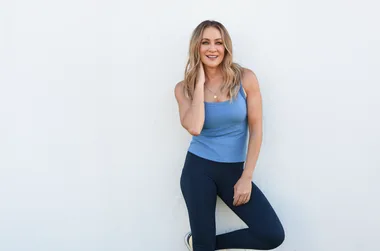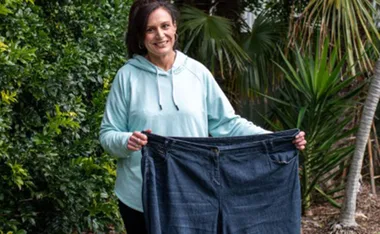With our demanding, stressful lives, many people are turning to vitamin supplements in an effort to maintain health — but are they really doing us any good? Karen Inge reports.
The supplement industry is growing at a phenomenal rate in Australia. No longer the sole realm of the health food store, naturopath clinic or pharmacy, you’ll now find rows and rows of vitamin and mineral combinations for every life stage and health concern in the local supermarket, on line, at your gym and even at the petrol station.
In pictures: Bizarre beauty treatments
According to Research Australia’s annual public opinion poll on health and medical issues, more than half the population took multivitamins in the last year to help combat a lack of energy and 30 per cent of Australians took vitamin C pills to prevent colds.
While we all want to be well and feel fit and fabulous, if you think swallowing a supplement means instant good health, think again. It’s not that simple. In fact, while some may be valuable for particular conditions, they may not be helping us at all. So let’s get supplement savvy.
Food first
The best way to get your vitamins and minerals is from food which is naturally high in that nutrient, such as calcium from milk, vitamin C from oranges, iron from red meat, zinc from oysters and so on.
This is because, in most cases, the nutrient is more available in the food form, plus other components of the food may assist in absorbing that nutrient and support its function once absorbed.
In other words, vitamins and minerals from food work better than the supplements. The exception is folate where the synthetic form, either as a supplement or fortified food, is better absorbed.
Know if you need them
Most of us will be able to meet all our nutritional needs through the food we eat but some, for a number of reasons, may benefit from a specific vitamin or mineral supplement.
If you are feeling “out of sorts” and concerned about nutritional deficiencies, the best thing to do is see a doctor who will arrange a blood test to check your health and nutrition status. That way you eliminate the guesswork.
If you want to take a supplement, it is much better to take multivitamins at the Recommended Dietary Intake (RDI) level, rather than single nutrient supplements or high-dose multivitamins unless you have had a blood test to confirm a dietary deficiency.
Maximise your intake
Most nutrient supplements are better absorbed when they are taken with food; the exception is folate. Some nutrients such as the fat-soluble vitamins E, A, D and K are better absorbed when they are taken with a small amount of fat — preferably healthy fats like a slice of bread spread with avocado or peanut butter, a few nuts or even a small glass of low-fat milk (not skim).
Other supplements, like calcium, may be better taken with food or something acidic, like fruit juice.
Generally the body will not absorb more than 500mg of calcium at once, so if you have been advised to take more than this daily as a supplement, then you should split the dose and take it at different times in the day. Also, calcium will not be optimally metabolised by the body if you have low vitamin D levels, low phosphate levels or low magnesium or zinc levels.
Iron absorption is enhanced with vitamin C, so having a glass of OJ with your iron supplement is smart. But we also know that tannins in tea inhibit iron absorption, so save the cuppa for later. As iron and calcium compete for absorption sites, it’s best not to take them together.
Ask the experts
Supplements need to be treated with respect, and ideally only used on the advice of trained professionals including doctors or Accredited Practicing Dietitians.
And don’t expect instant results. If you have been advised to take a particular nutrient, you may not ever feel different but your body will be functioning better. For some nutrient deficiencies, such as inadequate iron or vitamin D, it may take months to show the benefits of the supplement and this may only be when your doctor retests the levels of that nutrient to see whether your levels have returned to acceptable levels.
Related: Vitamins linked to breast cancer
You might need a vitamin, mineral or dietary supplement if:
You follow a strict vegan diet
Your doctor has recommended a supplement because tests show your body has low levels of a nutrient.
You are planning to become pregnant
You are following a very low-energy weight-reduction diet or have had weight-reduction surgery.
You have low bone density
You have been unwell and are eating less
You have a poor appetite and eat small or infrequent meals — this is of concern for the elderly.
You regularly drink more than 4 standard drinks of alcohol a day and/or you smoke.
You are taking medications that increase or decrease your need for some nutrients. People taking warfarin, for example, need to be careful about their vitamin K intake.
Your say: Do you think dietary supplements are effective, or just an expensive waste of time?
Video: Vitamins during pregnancy











